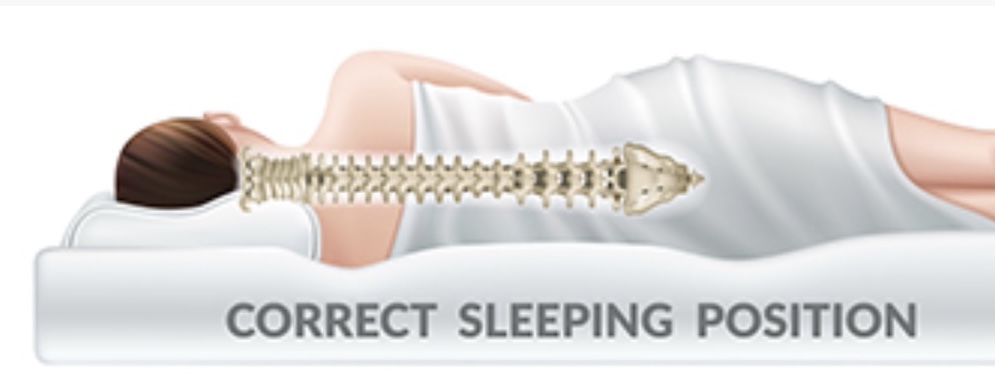One of the most frequent questions a physiotherapist gets asked in the clinic is “what pillow is the best for sleeping?” The answer to that question is not straightforward with a number of factors that need to be considered.
To get a good night’s rest, you need to properly support your head and neck by ensuring your head and neck are in alignment with the rest of your body. It is important to find a pillow that keeps your neck in a neutral position.
There are many pillows in the market today with a built in curve for your neck to rest on. They claim to offer the ideal support for sleeping. Keep in mind, when purchasing these pillows, that not everyone is built the same and measurements for making a pillow which supports our natural curve is not “one size fits all”. We all are built differently with shoulders being different widths and necks being different lengths. These pillows are therefore not suitable for everyone.
The main consideration when purchasing a pillow is to choose a pillow based on the position you like to sleep in at night.
Back Sleepers
Back sleeping puts your neck near its natural spinal alignment and so a pillow needs to just properly hold the head level with the shoulders. A thinner pillow accomplishes this with support under the neck allowing the muscles in the neck to properly relax. A pillow that is too thin will cause the head to fall back too far while a pillow that is too thick tilts the head forward too much.
Side Sleepers

Side sleeping is a healthy position to sleep in. Care must be taken to keep the curves of the neck and weight of the body well supported for ideal spinal alignment. This requires a thicker pillow to keep the neck and spine in the neutral position. You will need a pillow with enough height for your head and neck that allows the pillow to fill in the gap between your shoulders and ear. The broader the shoulders, the higher the height of pillow that is required to fill this gap.
Stomach Sleepers
Stomach sleeping is not ideal for your neck no matter how the body and head are supported, with spinal alignment compromised with stomach sleeping.This is because your neck and head are twisted to one side for prolonged periods of time making a neutral spine impossible. If you must sleep on your stomach, choose a pillow that is flat so your head is not elevated too high.Opting for a cut out pillow that lets you sleep face down is another option.
If you have any concerns with neck pain while sleeping, call our physiotherapists at the Durham Orthopedic and Sports Injury Clinic at 905-428-7800 to have an assessment and get to the root cause of your pain.


